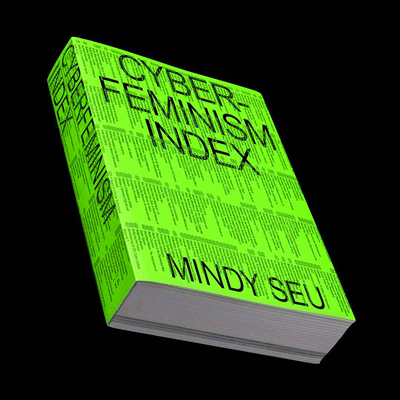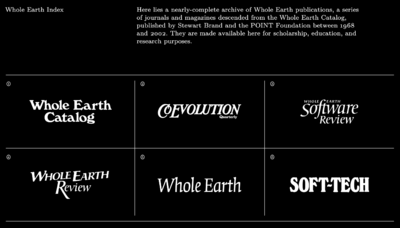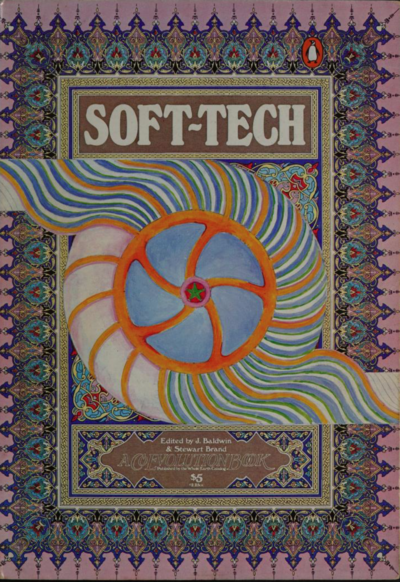Mindy Seu
From softwear.directory
Jump to navigation
Jump to search
⤢ a directory that gathers, stacks and links practices that work with, through and beyond (digital) fashion […]
LATEST UPDATE 26.09.2025
[002]
Cyberfeminism Index
Individual
critical

Cyberfeminism Index by Mindy Seu
In Cyberfeminism Index, hackers, scholars, artists, and activists of all regions, races and sexual orientations consider how humans might reconstruct themselves by way of technology. When learning about internet history, we are taught to focus on engineering, the military-industrial complex, and the grandfathers who created the architecture and protocol, but the internet is not only a network of cables, servers, and computers. It is an environment that shapes and is shaped by its inhabitants and their use.
The creation and use of the Cyberfeminism Index is a social and political act. It takes the name cyberfeminism as an umbrella, complicates it, and pushes it into plain sight. Edited by designer, professor, and researcher Mindy Seu, it includes more than 700 short entries of radical techno-critical activism in a variety of media, including excerpts from academic articles and scholarly texts; descriptions of hackerspaces, digital rights activist groups, and bio-hacktivism; and depictions of feminist net art and new media art.
Both a vital introduction for laypeople and a robust resource guide for educators, Cyberfeminism Index—an anti-canon, of sorts—celebrates the multiplicity of practices that fall under this imperfect categorization and makes visible cyberfeminism’s long-ignored origins and its expansive legacy.
“the Cyberfeminism Index is incomplete and always in progress..”
18.02.26
[004]
Multidimensional citation
Collective
speculative
At the start of 2020 we announced our collaboration by sending around a postcard. Three women in stone-colored clothing sat on the ground, our faces staring directly into the camera in a diagonal cascade. The postcard also contained a link to our website where we described ourselves and our collaboration.
Our differences allowed us to come together in a complementary way. An alliance of islands intuitively felt like our symbol: and for this reason we used three dots cascading ⋱ for our website’s favicon — the small icon that appears near the web browser’s address bar.
“A citation should not be singular, but instead explicitly connected to the lineage of research that came before it.”
18.02.26
[058]
Whole Earth Index
Collaboration
social
Here lies a nearly-complete archive of Whole Earth publications, a series of journals and magazines descended from the Whole Earth Catalog, published by Stewart Brand and the POINT Foundation between 1968 and 2002. They are made available here for scholarship, education, and research purposes. The Whole Earth Catalog was an American counterculture magazine and product catalog published by Stewart Brand several times a year between 1968 and 1972, and occasionally thereafter, until 1998. The magazine featured essays and articles, but was primarily focused on product reviews. The editorial focus was on self-sufficiency, ecology, alternative education, “do it yourself,” and holism, featuring the slogan “access to tools.”
Whole Earth published a number of singular publications throughout its run focused on topical themes, or containing content from aligned organizations. Often these volumes reprinted articles from prior Whole Earth perodical journals, supplemented with new content. And, while the entire archive is insightful and lives up to its “access to tools, ideas, and practices” byline, side projects like 'The Whole Earth Software Catalog' deserve special attention. Originally proposed by John Brockman as a magazine which “would do for computing what the original had done for the counterculture: identify and recommend the best tools as they emerged”, it seems to have been to ahead of its time. The first issue was released in the Fall of 1984. The Whole Earth Software Catalog was a business failure, however, and was only published twice, with only three of the Whole Earth Software Review supplements published. If we were to position this publication in the here and now, it would most likely belong to the niche digital networks that are sprouting from spaces such as are.na and the handmade web.
“Soft Tech is a term we’ve used and defended since the late sixties. Soft signifies that something is alive, resilient, adaptive, maybe even lovable.”
18.02.26
[SUBMIT]
As the online realm often feels infinite, this directory highlights non-commercial, critical, and experimental online content related (but not limited) to fashion and creative practices. It features projects, essays, visuals, and events, offering tools to navigate this dynamic landscape.
In gathering a wide variety of practitioners and collectives, we are always expanding, and looking to add to this growing bibliography of ‘being online’.
If you've encountered or created something that fits within this scope, feel free to share and submit!
Retrieved from "https://softwear.directory/index.php?title=Mindy_Seu&oldid=134"


